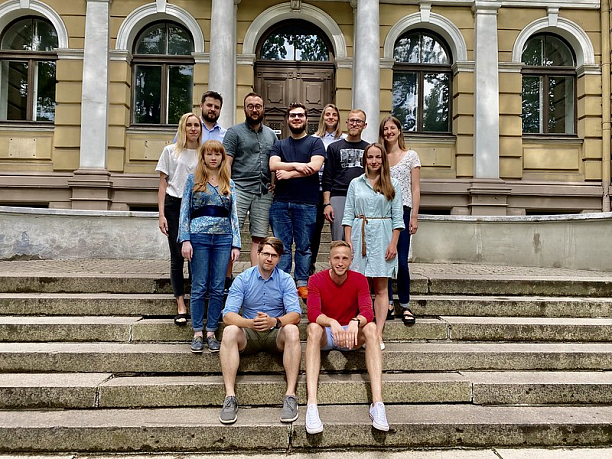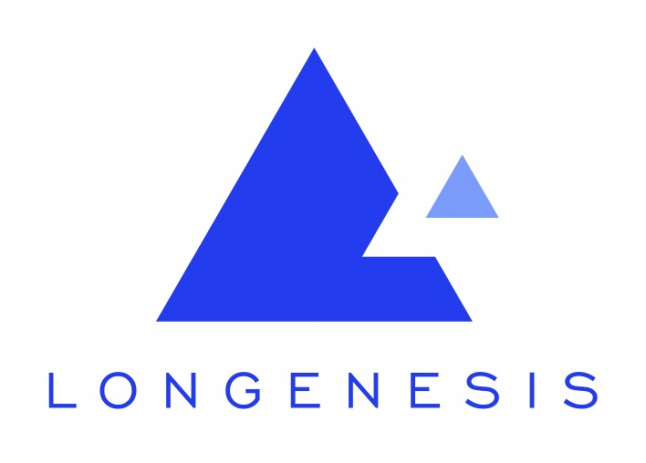49029
Longenesis
Compliant clinical asset exchange for clinics and sponsors
Latvia
Market: Medicine, Pharmacology, Other
Stage of the project: Operating business
Date of last change: 03.09.2020
Latvia
Market: Medicine, Pharmacology, Other
Stage of the project: Operating business
Date of last change: 03.09.2020
Idea
Longenesis focuses on developing legitimate ways for biomedical data identification, population cohort onboarding, and new patient engagement by creating an end-to-end environment for Clinical Investigators and research partners and sponsors - to communicate directly, enabling both safe data showcasing and compliant, consent-enabled clinical data utilization for research. It is achieved through Curator (data showcasing tool without compromising privacy and data ingestion) and Themis (end-to-end compliant digital consent management toolkit).
Current Status
Working product.
To date we have:
- Initiated collaboration with 20+ clinical institutions, as well as patient organizations, biobanks, genomic sequencers, and digital health startups, including clinics and health authorities in the U.S., South Korea, Northern European region, and the Middle East.
- Provided Consent Management tool toBiobank network in Northern Europe, National COVID- 19 research initiative in Latvia, as well as National genome initiative in the Middle East (Population Genome Program, Abu Dhabi),
- Provided proactive study onboarding and consent audit mechanisms for SARS-CoV-2 research studies (including Inactivated SARS-CoV-2 Vaccine clinical trial);
- The company's traction within the Engagement tools includes case studies for COVID-19 risk stratification framework within the European Institute of Innovation and Technology the initiative, nutraceutical studies, and an epidemiological clinical study for breast cancer risk stratification in the Baltic region, involving 5000 female participants.
- Generated and overall patient reach of close to 1M in specific areas such as oncology, diabetes and rare diseases.
- Partnered with several CROs and pharma.
To date we have:
- Initiated collaboration with 20+ clinical institutions, as well as patient organizations, biobanks, genomic sequencers, and digital health startups, including clinics and health authorities in the U.S., South Korea, Northern European region, and the Middle East.
- Provided Consent Management tool toBiobank network in Northern Europe, National COVID- 19 research initiative in Latvia, as well as National genome initiative in the Middle East (Population Genome Program, Abu Dhabi),
- Provided proactive study onboarding and consent audit mechanisms for SARS-CoV-2 research studies (including Inactivated SARS-CoV-2 Vaccine clinical trial);
- The company's traction within the Engagement tools includes case studies for COVID-19 risk stratification framework within the European Institute of Innovation and Technology the initiative, nutraceutical studies, and an epidemiological clinical study for breast cancer risk stratification in the Baltic region, involving 5000 female participants.
- Generated and overall patient reach of close to 1M in specific areas such as oncology, diabetes and rare diseases.
- Partnered with several CROs and pharma.
Market
Longenesis has two groups of customers/stakeholders:
1) Data publishers or aggregators - clinical institutions, patient organizations, biobanks, genome sequencers, etc. This group is motivated by the clinical data exposure opportunity and monetization (or patient advocacy in case of patient organizations) with study sponsors;
2) Study sponsors - CROs, pharma, and data-companies, where biopharma is usually looking into faster disease-specific patient enrollment and prospective (non-interventional) data generation, but data companies are after consented clinical data access.
The global clinical data market is valued at approx 60B, whereas the digital patient recruitment market is projected to grow to 35B by 2025.
1) Data publishers or aggregators - clinical institutions, patient organizations, biobanks, genome sequencers, etc. This group is motivated by the clinical data exposure opportunity and monetization (or patient advocacy in case of patient organizations) with study sponsors;
2) Study sponsors - CROs, pharma, and data-companies, where biopharma is usually looking into faster disease-specific patient enrollment and prospective (non-interventional) data generation, but data companies are after consented clinical data access.
The global clinical data market is valued at approx 60B, whereas the digital patient recruitment market is projected to grow to 35B by 2025.
Problem or Opportunity
The global clinical data market is valued at approx 60B, whereas the digital patient recruitment market is projected to grow to 35B by 2025. Yet, the industry is still struggling with siloed, fragmented data and patient registries, inability to digitally process and transfer patient consent, and conflicting regulations, which results in failing to utilize clinical data assets and patient reach efficiently. Simply put, clinical institutions and patients organizations are sitting on data and patient reach without technological and legal means to compliantly expose it for collaborative research or any interventional studies. Last but not least, any clinical data or patient identification activities usually take up one of the longest and costliest portions of any clinical study.
Solution (product or service)
Longenesis equips clinical institutions with means for compliant data curation, study sponsor attraction, and facilitation of collaborative research, as well as helps to onboard and engage patient and population cohorts into prospective research. We have designed an end-to-end approach for
accelerating clinical asset identification and acquisition through three key modules:
● Identification: Longenesis created a solution called “Curator” - an ecosystem where clinical institutions, patient organizations, and other biomedical data aggregators can compliantly showcase the metadata describing their patient or clinical data reach to potential sponsors. Sponsors can query through anonymized metadata metrics and request access to patient cohorts or datasets directly from institutions/organizations holding them. Longenesis does not ingest any data.
● Onboarding: our proprietary SaaS digital patient consent management tool - “Themis” - that enrolls patients into research activities by getting auditable and transferable permissions, providing regionally compliant consent management at the institutional level.
● Engagement: disease-specific tools for patients/population cohorts proactive engagement in clinical research activities. These tools are complementary, serving as a mechanism for prospective data generation, based on the specific conditions and sponsor’s requirements.
(!) Longenesis covers the full cycle from initial data exposure to patient selection, consenting, and trial enrolment.
accelerating clinical asset identification and acquisition through three key modules:
● Identification: Longenesis created a solution called “Curator” - an ecosystem where clinical institutions, patient organizations, and other biomedical data aggregators can compliantly showcase the metadata describing their patient or clinical data reach to potential sponsors. Sponsors can query through anonymized metadata metrics and request access to patient cohorts or datasets directly from institutions/organizations holding them. Longenesis does not ingest any data.
● Onboarding: our proprietary SaaS digital patient consent management tool - “Themis” - that enrolls patients into research activities by getting auditable and transferable permissions, providing regionally compliant consent management at the institutional level.
● Engagement: disease-specific tools for patients/population cohorts proactive engagement in clinical research activities. These tools are complementary, serving as a mechanism for prospective data generation, based on the specific conditions and sponsor’s requirements.
(!) Longenesis covers the full cycle from initial data exposure to patient selection, consenting, and trial enrolment.
Competitors
There are three types of competitors we indirectly face:
1) Data brokers, focusing on re-selling anonymized data, uncomparable in value to real patient access (e.g. IQVIA as powerhouse)
2) Clinical data marketplaces, offering brokerage through their platforms (for example - HealthVerity).
3) Simple digital consent management systems that are not fit for clinical consent management.
Advantages or differentiators
The approach of Longenesis is unique due to its end-to-end nature. We cover the whole clinical asset utilization cycle - from early identification using anonymized metadata, to patient or data access requests to specific custodians and patient onboarding through streamlined regulation-adoptable consent management. It is crucial to note that Longenesis does not ingest any data from healthcare institutions and the data would always stay with its custodian.
None of these would provide for full data curation and "legitimization" cycle.
None of these would provide for full data curation and "legitimization" cycle.
Finance
End of 2020 revenue target - $2M in pre-booked revenues
5th year revenue target - $10M annual
Revenue streams:
1) SaaS-based consent management from clinical data custodians. On average - $50-70k per year from the institution.
2) Data dashboard usage - fixed recurring subscription fees from sponsors (20k USD yearly), royalty payments from sponsors per successful patient enrollment ($500 to $1000 per patient)
Currently - 300k in realized and pre-booked revenue in 2020
5th year revenue target - $10M annual
Revenue streams:
1) SaaS-based consent management from clinical data custodians. On average - $50-70k per year from the institution.
2) Data dashboard usage - fixed recurring subscription fees from sponsors (20k USD yearly), royalty payments from sponsors per successful patient enrollment ($500 to $1000 per patient)
Currently - 300k in realized and pre-booked revenue in 2020
Business model
1) Consent module - SaaS-based subscription, provided via an API to point of care or clinical institutions/investigators. Quarterly recurring payments.
2) Dashboard tool - a combination of fixed recurring and success-based payments:
- Subscription for using the service - yearly fee paid by sponsors;
- The commission per patient enrolled or datapoint acquired paid by sponsors.
2) Dashboard tool - a combination of fixed recurring and success-based payments:
- Subscription for using the service - yearly fee paid by sponsors;
- The commission per patient enrolled or datapoint acquired paid by sponsors.
Money will be spent on
- 2x dev and business dev (MD) team expansion;
- reaching 2M disease-specific patient reach by Jan 2021
- pre-booking 2M in revenue by the end of 2020
- deploying with 3 additional biobanks and 10 clinical institutions
- obtaining resources to satisfy the existing client pipeline which we can't service now.
- reaching 2M disease-specific patient reach by Jan 2021
- pre-booking 2M in revenue by the end of 2020
- deploying with 3 additional biobanks and 10 clinical institutions
- obtaining resources to satisfy the existing client pipeline which we can't service now.
Offer for investor
Raising an overall of $1,5M pre-A round in equity.
Team or Management
Mentors & Advisors
Leesa Soulodre
Risks
1) The cadence of onboarding the clinical insitutions to widen the data reach. Mitigation - automating the process of helping clinical institutions to prepare their metadata for showcasing.
2) Liquidity. Mitigation - raising early and attracting smart capital.
3) Regulation. Mitigation - compliance with relevant regional data protection directives and obtaining local legal counsel.
2) Liquidity. Mitigation - raising early and attracting smart capital.
3) Regulation. Mitigation - compliance with relevant regional data protection directives and obtaining local legal counsel.
Incubation/Acceleration programs accomplishment
500 Startups Singapore graduate
Won the competition and other awards
EIT Headstart COVID 2020 - winner
Medtech Innovator AsiaPacific - finalist
TechChill 2019 - finalist
Medtech Innovator AsiaPacific - finalist
TechChill 2019 - finalist
Invention/Patent
PCT Appln. No. PCT/IB2019/052363
Photos

Presentation
Sign in/Sign up
